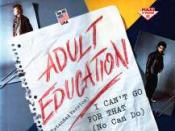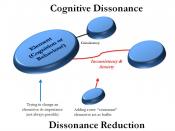As the number of adults taking up higher education increase, either because of demands on the job or because of pure interest, an understanding of what compels adults to have a positive attitude towards learning becomes vital. An idealized myth persists as an academic orthodoxy in adult education; that adult learning is naturally a joyous experience; that adults are inherently self-directed as learners; that good educational practice always meets the needs articulated by the learners themselves. Of course, this myth is not necessarily true among adult learners. Several variables can affect adult education. While age comes up as the obvious variable affecting adult learning, other variable come into play as well. Across an adult's life span, such variables as culture, ethnicity, personality, politics assume a great significance when explaining how learning happens and is experienced (Brookfield, 1995).
Attitude and LearningDefined as the disposition to respond positively or negatively towards an idea, object, person, or situation, attitude has a great effect on learning.
Attitudes are related to opinions and beliefs and experiences and importantly, also in interaction with others. Learning involves a great deal of acquiring or changing attitudes.
Hull studied intervening variables that affected such behavior as initial drive, incentives, inhibitors and prior training. (Hull, 1940, 1943). Reinforcement was the main determinant of learning. In Hull's theory, the habit strength hierarchy for a given stimulus creates different responses from an organism. The probability of change in a specific response becomes likely because of rewards. This is also affected by other variables such as inhibition. Intended as a general theory of learning, Hull's theory involves a number of relevant principles.
â¢Hull's theory surmised that drive is essential for responses to occur. The student must have the will, must want to learn.
â¢Stimuli and responses must be detected by the...


